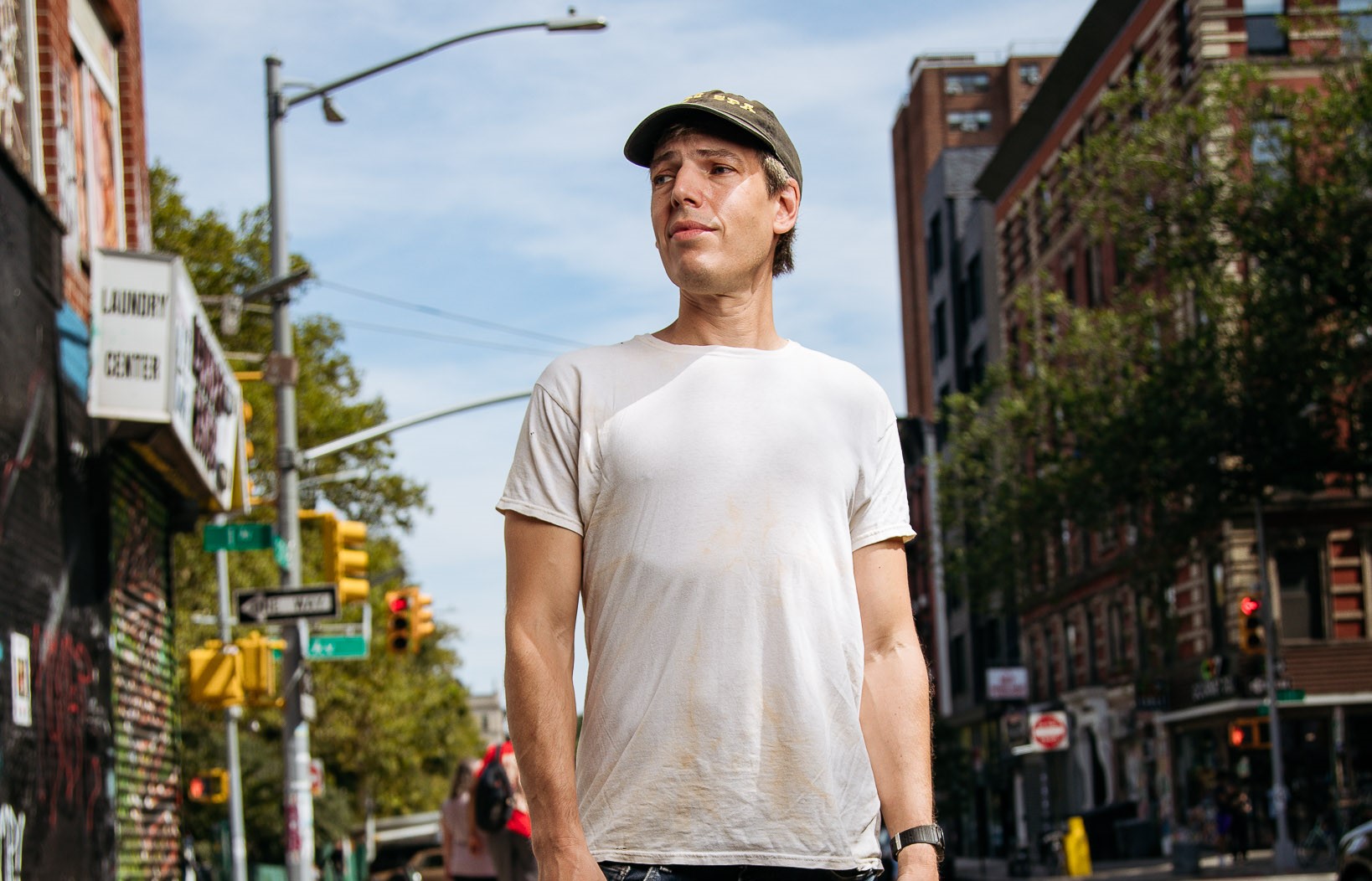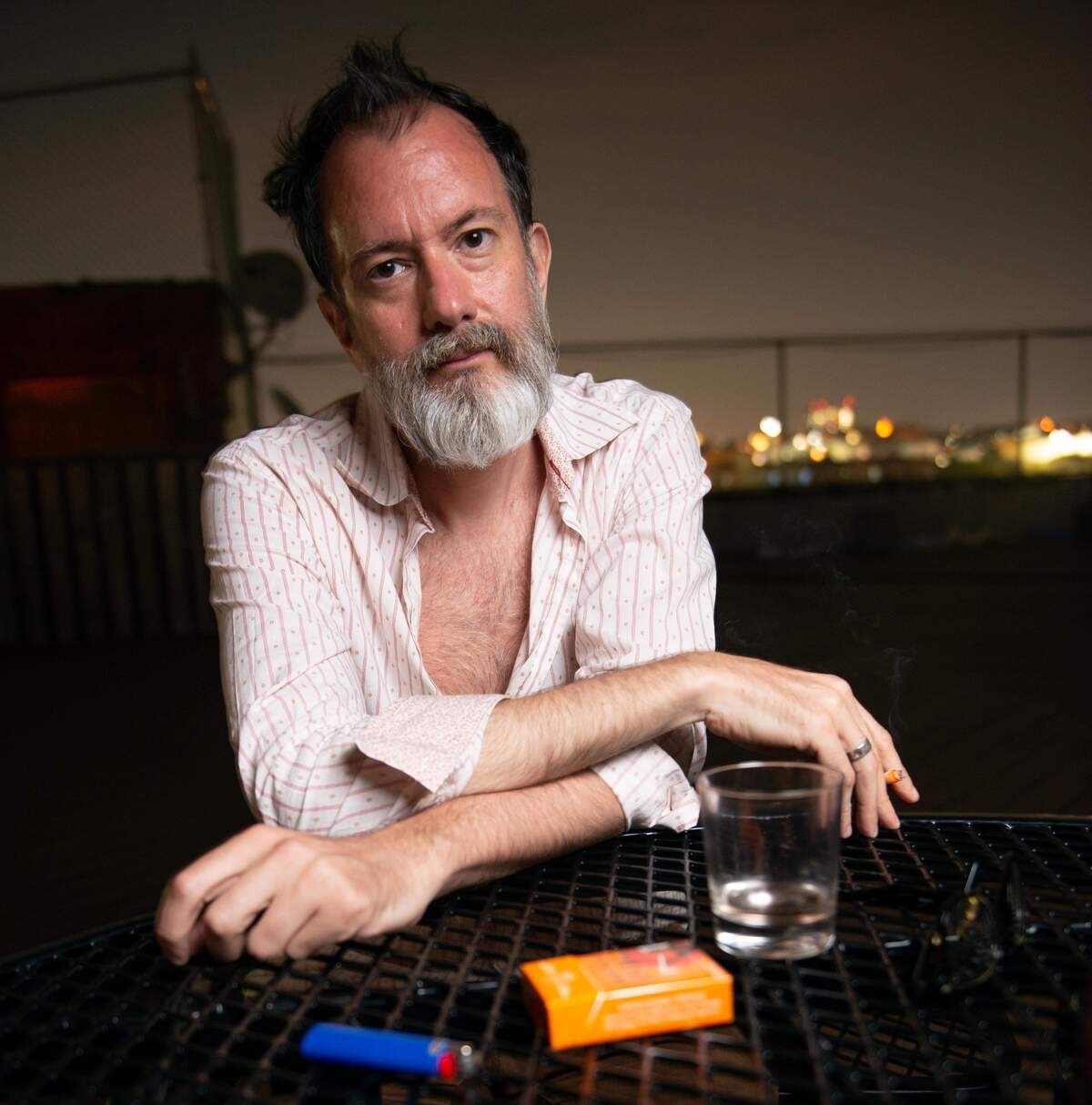Kollektiv | Interview
Kollektiv is a legendary German group that released their eponymous album on famous label Brain in 1973. Kollektiv produced an incomparable and innovative sound.
“The concept was ideally free and equal improvisation”
Who were members of Kollektiv?
Kollektiv was:
Waldo Karpenkiel, drums. Born 8. 2. 1948
Jürgen (Jogi) Karpenkiel, bass. Born 8. 2. 1948
Jürgen Havix, guitar. Born ? (passed away in about 2016 in Berlin)
Klaus Dapper, sax, flute. Born 8. 2. 1948
Yes, the three of us have the same birthday.
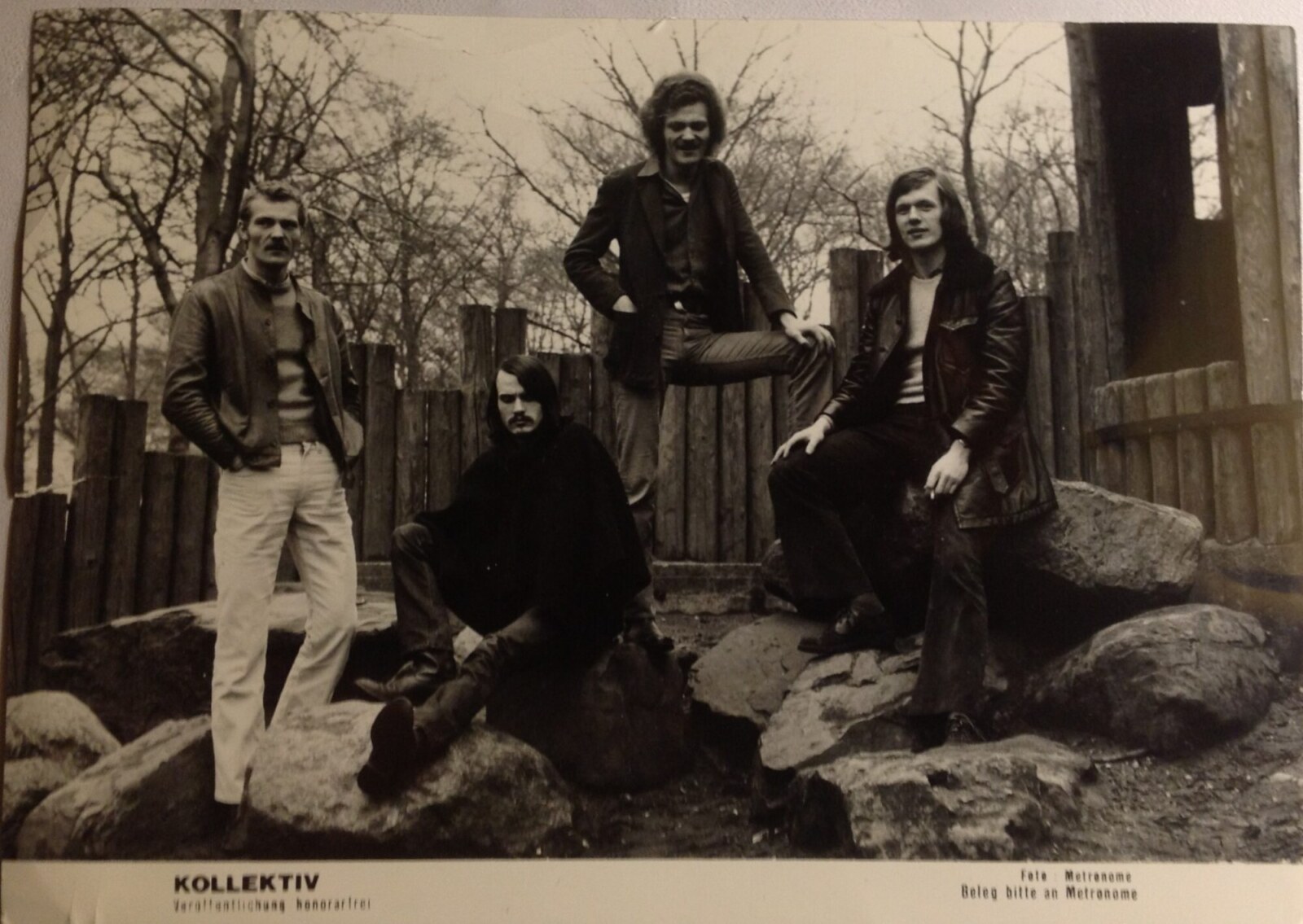
Where and when did you grow up? Was music a big part of your family life?
Waldo Karpenkiel: I grew up near Hannover. I was 10 years old when my family moved to Krefeld. My family was not involved with music. There was only a hint by my mother, that shortly after second world war my father occasionally played drums on funfair occasions earning payment in kind, instead of money.
Klaus Dapper: I was born in München. I was 7 years old when my family moved to Duisburg. My parents did not play musical instruments, but the radio was running all day. I remember hearing Elvis Presley, Roy Orbison, the Everly Brothers, The Shadows and so on… My first record my mother bought for me was Tom Dooley from 1958. Later on I fell in love with Dixieland.
When did you begin playing music? What was your first instrument? Who were your major influences?
Waldo: I started at the age of 13 with a snare drum and tried to play skiffle music.
Klaus: The first instrument I wished for Christmas was a banjo. I was so disappointed when my parents bought me a guitar! Later I tried a lot of different instruments. I got piano lessons, but I did not rehearse. I bought at a second hand shop a trumpet, a tuba, a clarinet, an alto saxophone. I tried to learn to play all of them without teacher. Finally I landed with saxophone, mainly tenor. My musical influences came from different directions, mainly jazz.
Klaus [Dapper], you were part of Musikalische Gruppen-Improvisation. What can you tell us about this collective? You recorded an album in 1971.
Klaus: It is so long ago….In Remscheid there was an institution for arts with some musical courses. It was an open place to try every kind of improvisation. We all came from different musical background, so we had to find out what we can do together. We had any freedom and we had a lot of fun, but finally I felt, that free jazz and other kind of free music is not my goal.
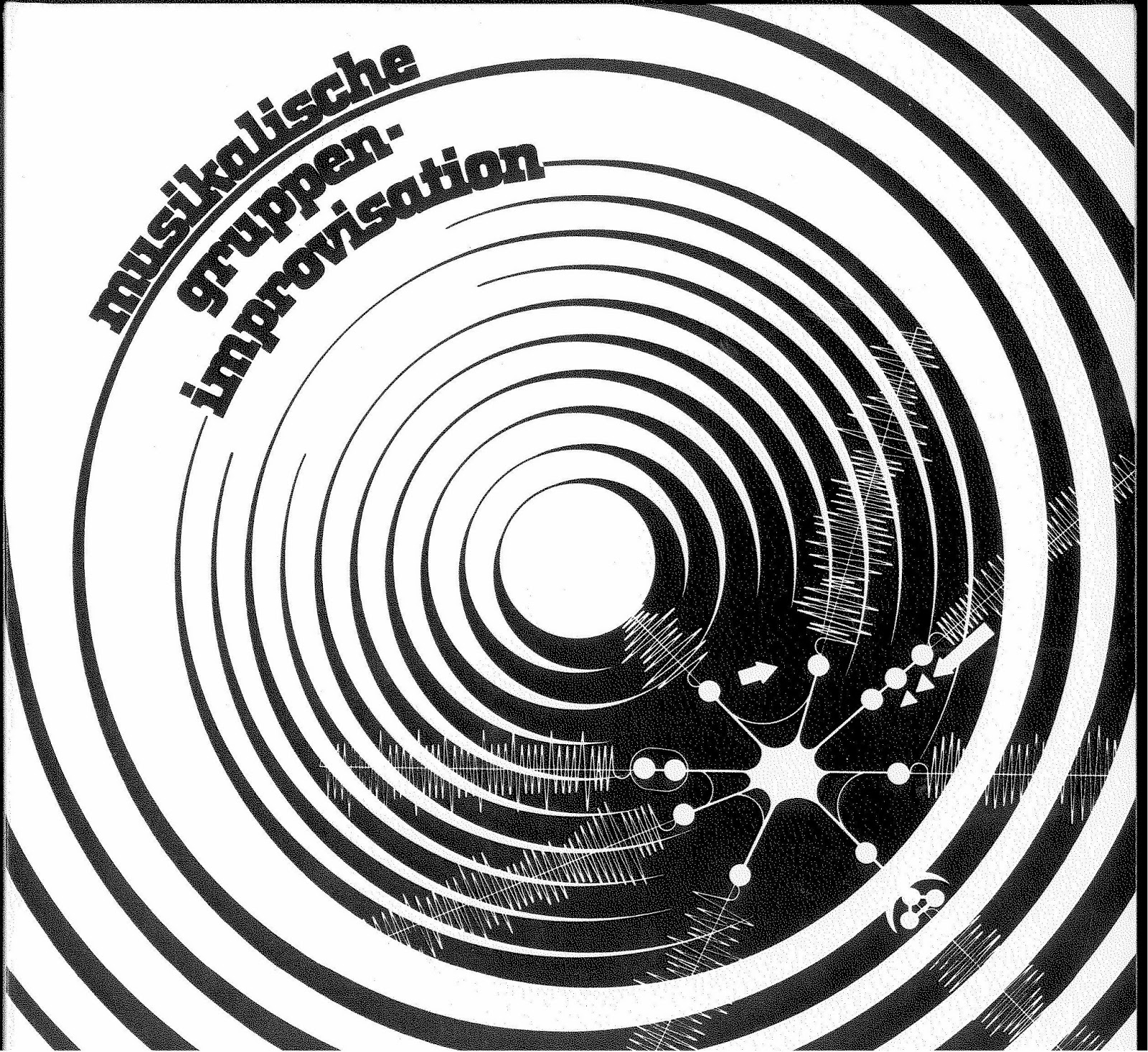
How about your collaboration with Peter Janssens, Karl Lenfers, Ernesto Cardenal, Wilhelm Willms?
Klaus: After finishing school in 1966 I met Peter Janssens. He was in Germany the best known person for “Jazz at Church”. He also composed and played a lot of theatre music. Peter asked me to join a band for a Shakespeare play at “Düsseldorfer Schauspielhaus”. He needed a sax player and a flute player. I came to the audition with my tenor. There I met a Polish sax player named Edward Aniol. He played me into the ground. He had studied jazz saxophone at a college of music in Krakow and he was a fantastic musician. I packed my sax into the case and wanted to go. Peter seemed to like me and he asked me if I could imagine learning flute in the next 3 months. I had learned to play different instruments on my own, so I thought it would not be too difficult. So I said “Yes”. Next day I bought my first Yamaha flute and tried. I needed one whole week to get the first note out of that obstreperous instrument. I really hated this instrument. For the first theater show Peter gave the melody to Eddie, I played the second line. On the next show for some songs I got the melody! It went better and better, and finally I ended up studying flute at a college of music in Duisburg.
There were a lot of Polish artists working in Germany at that time. Two of my Peter Janssens’ theatre jobs were directed by Jan Biczycki. His wife, Roma Ligocka made the costumes, she is a cousin of Roman Polanski. I loved them. In German clubs we admired musicians like Michał Urbaniak and Urszula Dudziak, Zbigniew Seifert, Tomasz Stanko and Czesław Niemen.
With Peter I was on Solentiname, an island in the Lago de Nicaragua, where we met Ernesto Cardenal. He was priest and poet, he was in political opposition to the ruling Somoza regime. Peter had published a record with his poems. One line Spanish, the same line in German by a different singer, and so on. That was the reason to visit him with band and instruments. It was not easy to get there. We took a regular ferry-boat and paid some extra money. So the captain made some detour and brought us to the island where Ernesto lived. Next day the police came and asked what we wanted here. We paid some more money and could stay.
Karl Lenfers and Wilhelm Willms were friends of Peter. Both were priests and wrote lyrics for Peter’s songs. Karl Lenfersonce quit his job and married. I had no near personal contact to them.
How about others? Were any of you part of some groups?
Waldo: We had a good contact to the bands Brainstorm, Kraan, Sweet Smoke. My brother Jogi played for some years with Guru Guru.
Klaus: I played with Bröselmaschine, a folk rock band of Peter Bursch and recorded jazz rock with Waldo with Glatter Wahnsinn, later Supersession.
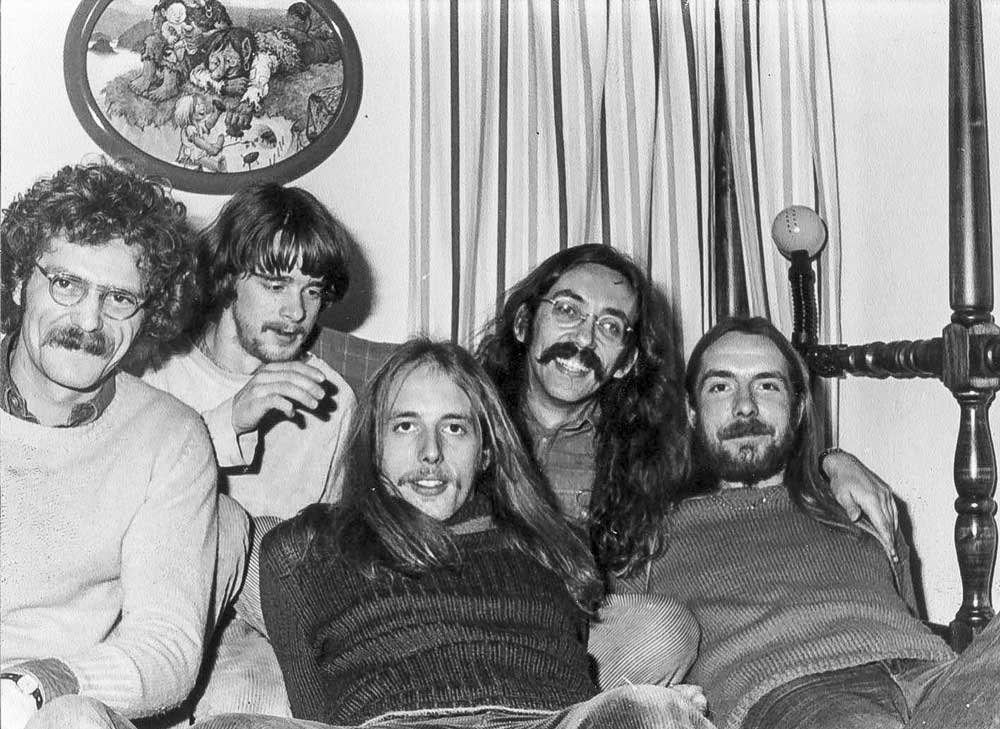
“We got more pleasure out of experimental music.”
Can you elaborate on the formation of Kollektiv? What was the main concept behind Kollektiv?
Waldo: We all came out of the “Beat Music” of the ’60s. Since about 1970 we got more pleasure out of experimental music. We heard more jazz, also experimental sorts, as well as music of Frank Zappa and Blodwyn Pig. Then we three Krefeld based musicians met flutist and sax-player Klaus Dapper and founded “Kollektiv” in 1970. The concept was ideally free and equal improvisation with a minimum of fixed melodical motives and long improvisation parts.
What sort of venues did Kollektiv play early on? Where were they located? How did you decide to use the name “Kollektiv”?
Waldo: We played in youth and cultural centers, later in jazz clubs, student clubs, university festivals. The venues were all over Germany. The name “Kollektiv” was a metaphor for “paripassu” playing and democratic influence over the musical direction.
What influenced the band’s sound?
Klaus: We did not have a special influence. In the “wild years” there were many bands overriding stylistic borders. King Crimson: a rock band with free jazz keyboarder Keith Tippett, The Mothers of Invention … From the end of ’60s to end of the ’70s it was the most creative decade for rock music. And we have been part of it.
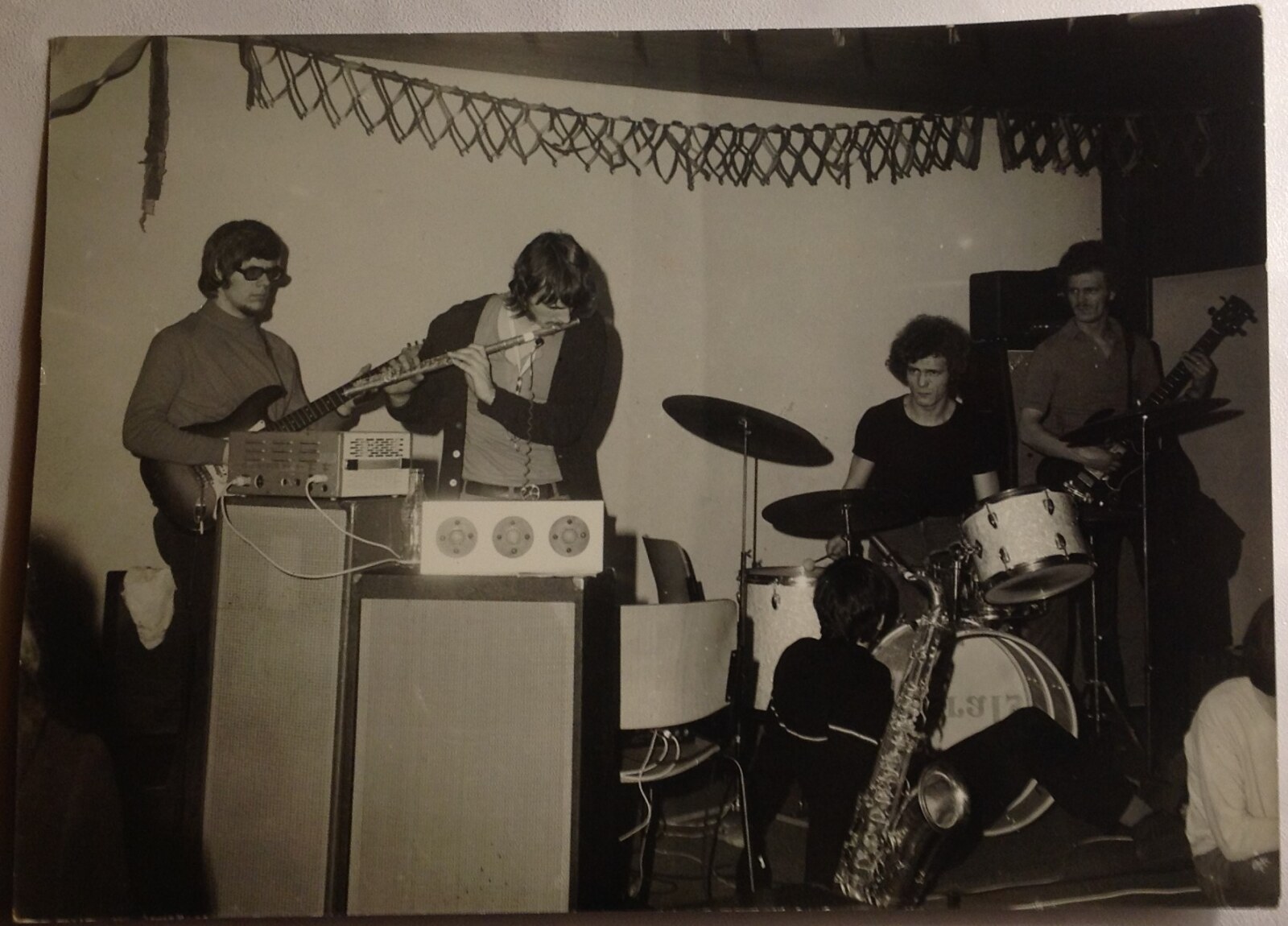
How did you get signed by Brain Records?
Waldo: My brother Jogi got in touch with Conny Plank and Günter Körber from “Metronome Brain”.
What’s the story behind your debut album from 1973? Where did you record it? What kind of equipment did you use? How many hours did you spend in the studio?
Waldo: The album was recorded by Klaus Lampe and Conny Plank, who was responsible for the sound of Kraftwerk, Neu!, Eurythmics, Brian Eno, Ultravox. We recorded our album at Windrose Studio, Hamburg. It took about a week.
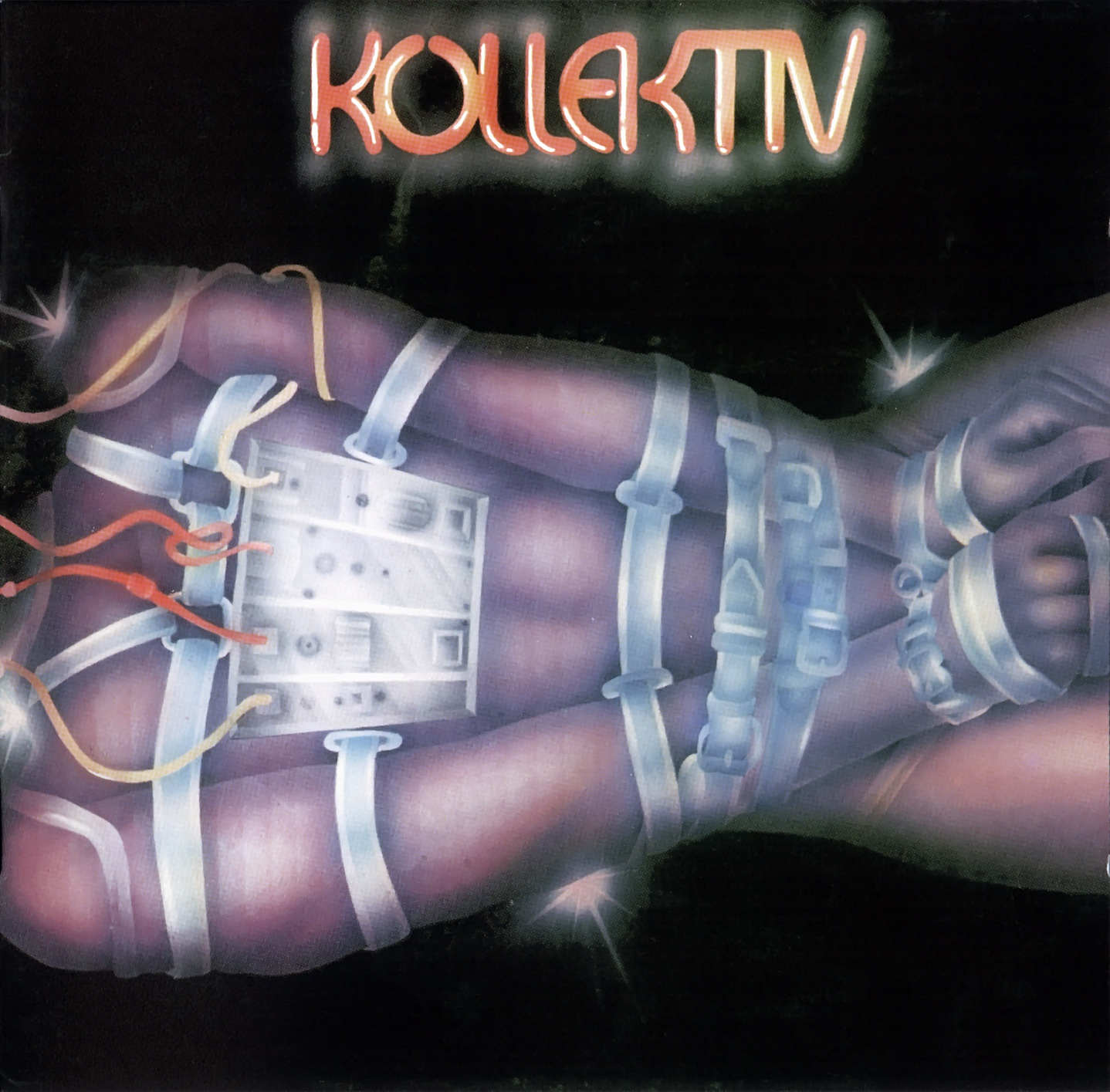
Was there a certain concept behind the album?
Waldo: No. We had only some short melodies, we had our special sound. The rest was improvisation.
Do you know many copies were pressed?
Waldo: As far as I remember 2000.
How pleased was the band with the sound of the album? What, if anything, would you like to have been different from the finished product?
Waldo: I am very happy with it, I would not change anything today.
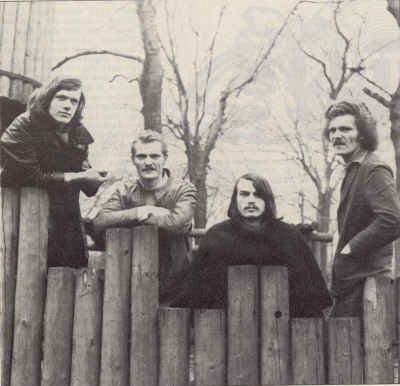
What were the influences and inspirations for the songs recorded?
Waldo: There were some influences from Frank Zappa, King Crimson and South American folklore.
What can you tell us about the material that was recorded at SWF? Long Hair Music issued it a few years ago.
Waldo: It was almost the same material and the same concept as on the first record. Maybe it sounds more mature.
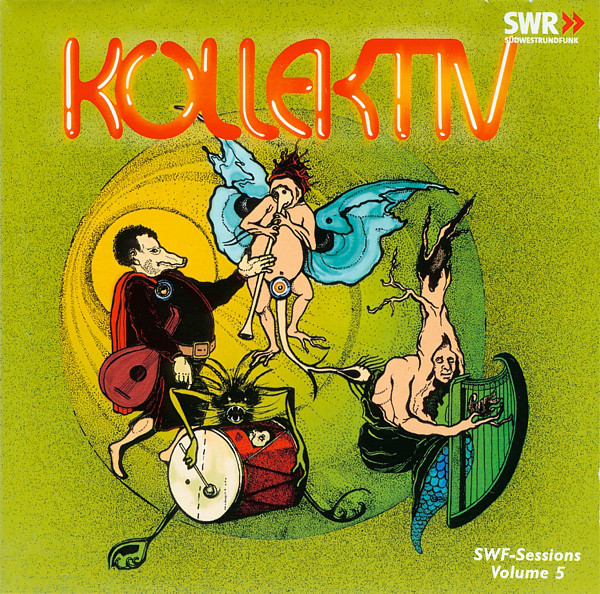
Klaus: I remember Roland Schaeffer, guitar and sax player from the band Brainstorm, sat at the mixing desk. He was jobbing for SWF (radio station) at the time.
There’s also another album you did with Jonas Hellborg?
Waldo: The music is more fusion style wise. Besides Jonas Helborg on bass, Thomas Bettermann was involved: the former keyboarder of Volker Kriegel.
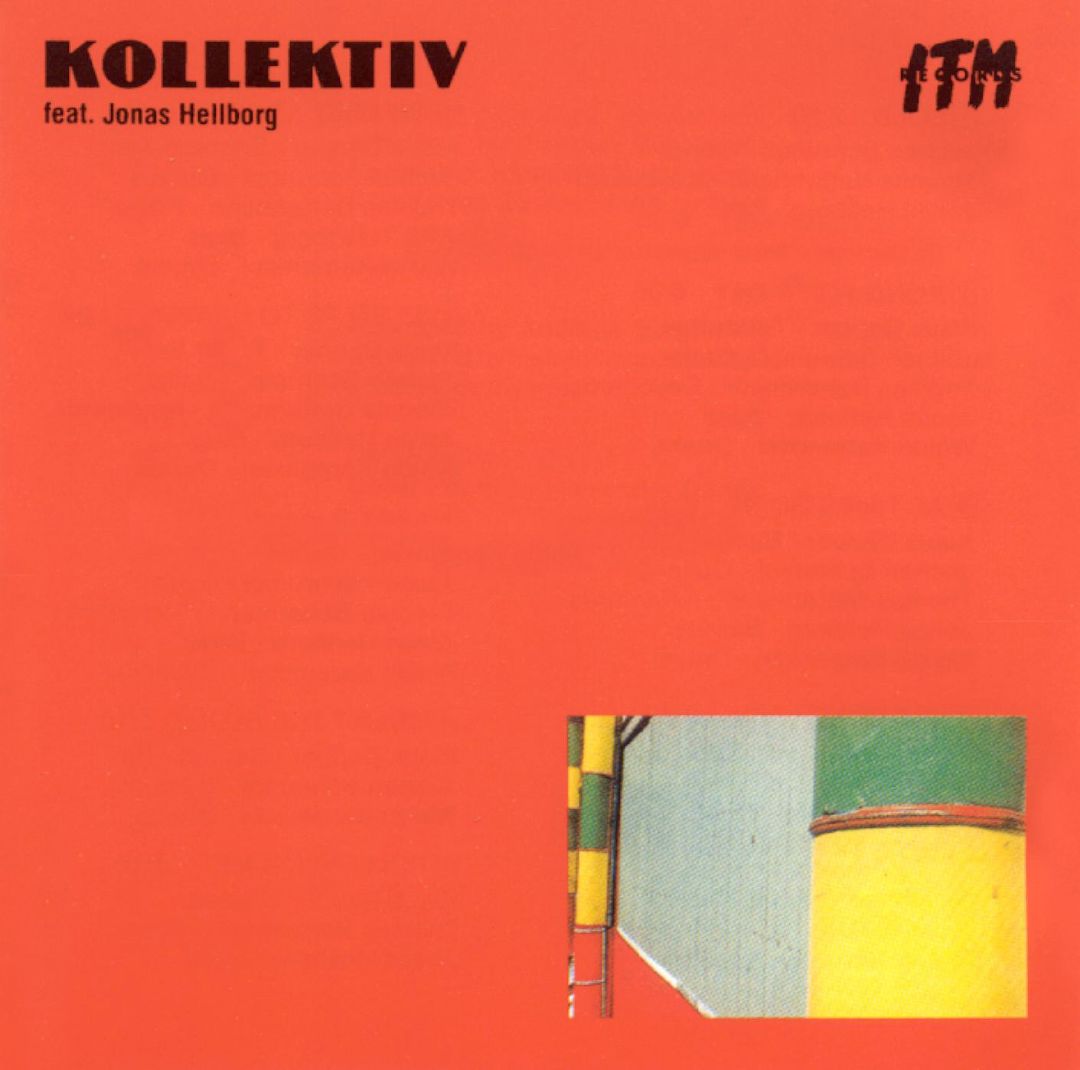
Klaus: It was recorded after Jürgen Havix had left the group. He went to Ireland, raising sheep. Later he lived in Berlin and was engaged in the anthroposophic scene. He never wanted contact to us again. We worked for a while with guitarist Jochen Schrumpf, who somehow succeeded in getting Jonas Helborg for a one day recording session in 1988.
You are all very active in the jazz scene and recorded a lot of albums. What are some of your albums and collaborations that you’re most proud of?
Waldo: Besides Kollektiv recordings:
Supersession ‘Tournee’
Supersession ‘Welcome and Alive’
Supersession ‘featuring Wayne Bartlett’
Glatter Wahnsinn ‘Glatter Wahnsinn’
Katamaran ‘Cafe Florian’
The Karpankiels ‘Radio Mali’
Bröselmaschine ‘I Feel Fine’
Marie Deutschland ‘Frau Trude’
Klaus: I have problems with hearing myself on the recordings. I never have been happy with it. Everything could have been done better…
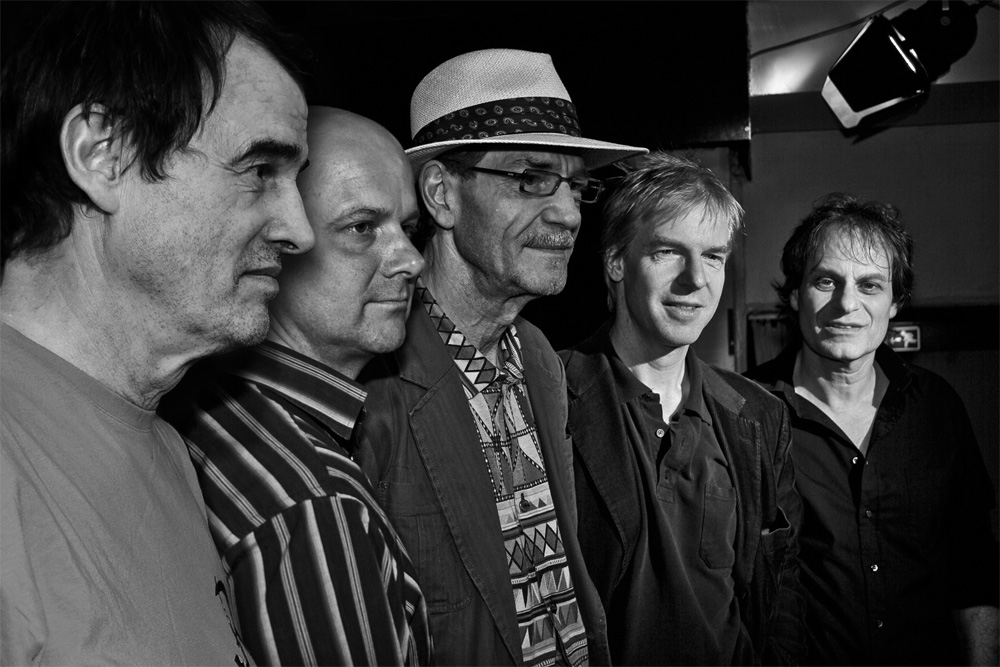
Would you like to comment on your playing technique? Give us some insights on developing your technique.
Waldo: Technically I admire Gene Krupa and Joe Morello, but I also took a look into Ginger Baker and Billy Cobham.
Klaus: The most remarkable was the use of pickups on flute and saxes and using electronics. Besides an tape echo I used “Maestro sound system for woodwinds”. In 1969 in Essen I saw Ian Underwood playing clarinet with Zappa’s “Mothers of Invention”. When he played I did not hear anything sounding like a clarinet. I found out what it was and purchased the “Maestro”. My sax playing was quite conventional. With flute I tried to add many kinds of wild sounds. Singing and playing together, playing on the headjoint only… Once I played a duo with flute and water kettle. I brought a cooking plate with me. When the water started to boil the whistle started. I could change the sound by stepping on the pot lid, and I joined with my flute…
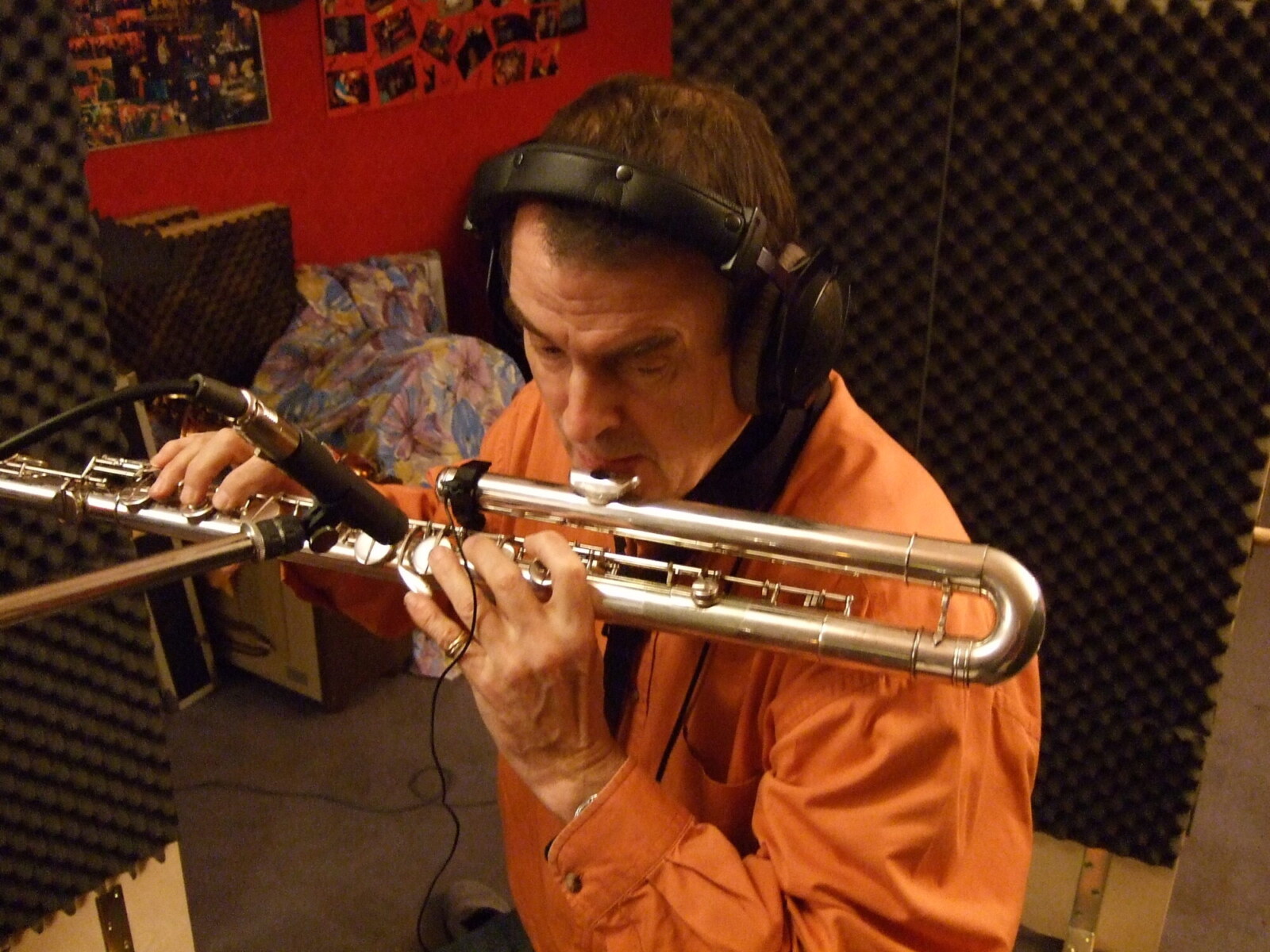
Looking back, what was the highlight of your time in the band? Which songs are you most proud of? Where and when was your most memorable gig?
Waldo: highlights were concerts together with Sweet Smoke, Kraan, Udo Lindenberg, Tangerine Dream, Embryo. I am proud of the songs ‘Baldrian’ and ‘Gageg’, of the SWF Session, and on ‘As Times Go By’, ‘Count the Blues’ from the LP with Jonas Helborg.
The most memorable event was after a gig in Würzburg club “Omnibus”, when I was loading our car at midnight. Suddenly I was facing a burglar, who just had left a jewelers shop after a burglary and nearly ran into me.
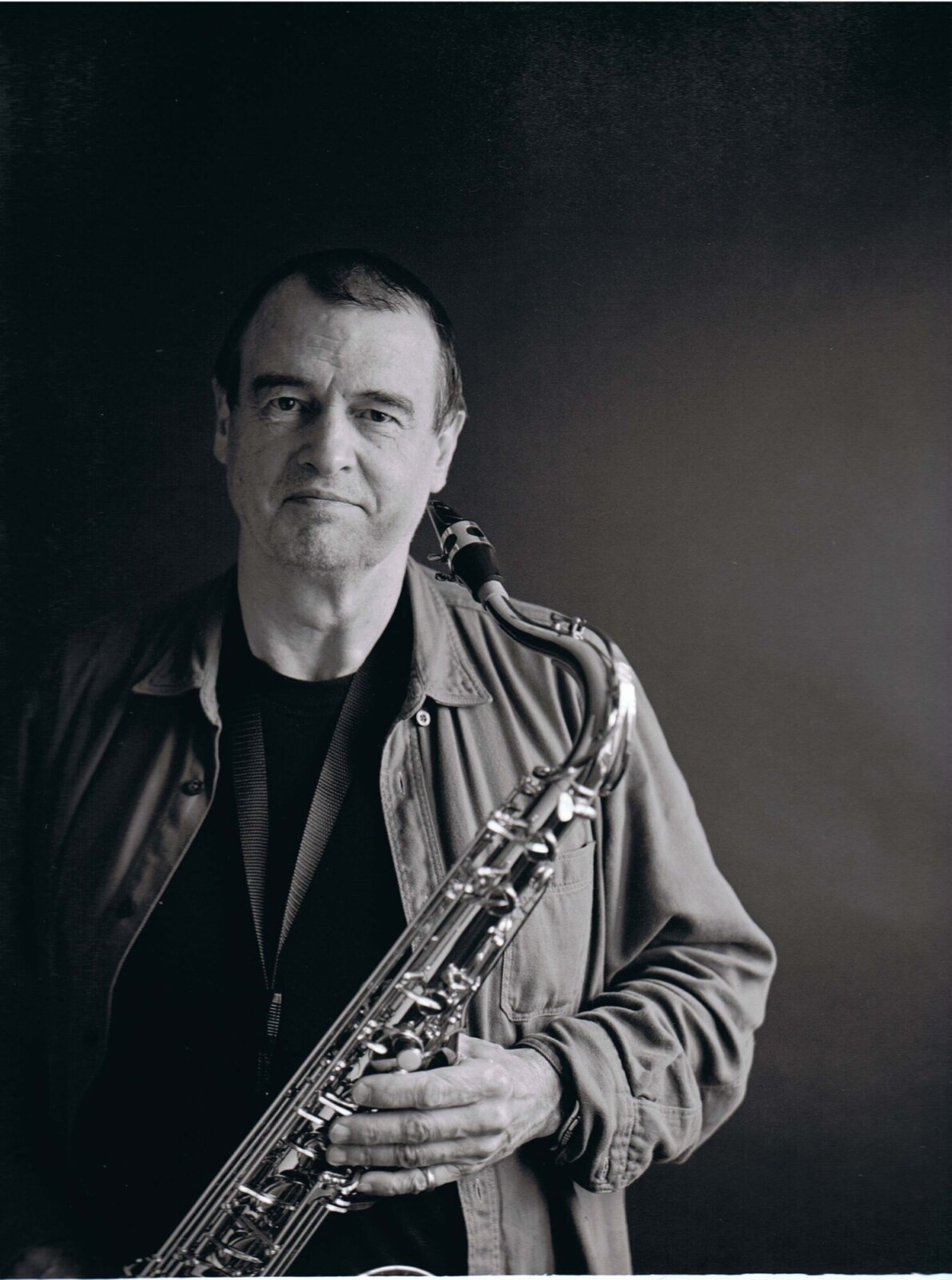
Klaus: I love to remember many gigs in the ’70s at the old Sinkkasten, Frankfurt, Mainstraße 2. It was an old basement vault club. There was a lot of trouble with the neighborhood because of loud music. Above the stage there was an UV-bulb hanging down just above eye-level. When the sound level was too high the bulb started to glow. After 20 seconds the electric current for the stage would be switched off. We got the bulb glowing pretty often, but succeeded every time to get the loudness down before getting switched off.
Is there any unreleased material by Kollektiv?
Waldo: I do not think so.
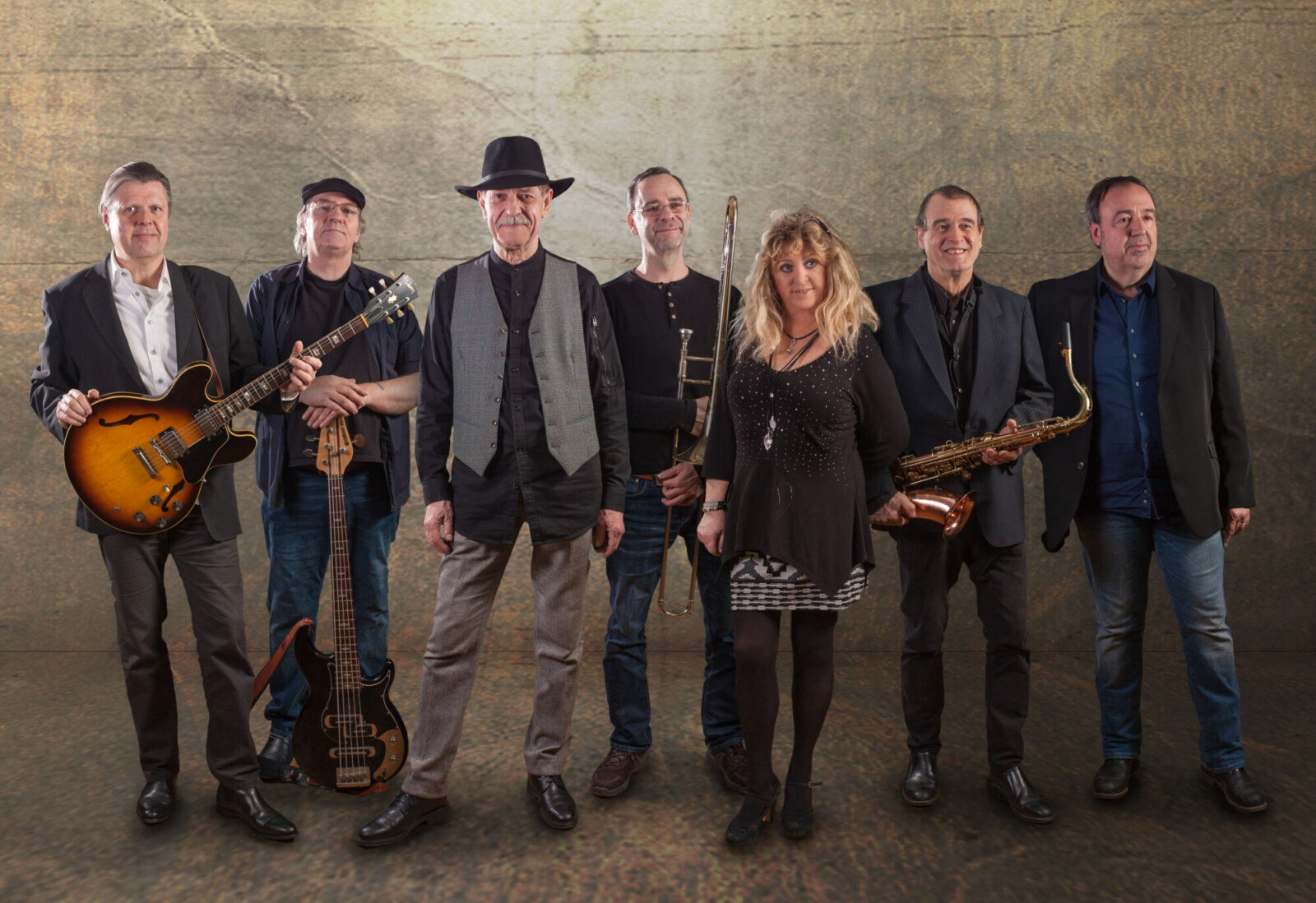
Thank you for taking your time. Last word is yours.
Klaus: We are pretty old now. We still are making music, we earn some part of our money with it, and we have much fun. It is a grace. I have seen a lot of good musician friends falling sick or passing away in the last years. In all these years something has fundamentally changed for me. At the beginning I looked up the mountains which peaks I could climb. At some time you change your approach. Getting older you become more cautious. You begin to consider how deep you can fall if you are careless. You do not think so much what you can reach in the best case, but what can happen to you in the worst case. In life as in music. Some years ago Waldo asked me to reunite the band Kollektiv. My thoughts were: with the high risk Kollektiv-concept (maximal place for improvisation / minimal thematic material) it could be very creative again, but if the inspiration happens not to appear on stage, you’re absolutely lost. Now this risk is too much for me. Since some years Waldo and I have a band named “Too Funky” (playing Crusaders). It is not as creative, but we all love the Crusaders. Wilton Felder has been one of my heroes. If we are on top, we can offer a very good performance. If we are not, the concert cannot be too bad: we all are experienced musicians, and the Crusaders compositions are so timeless and good, they will pull us through. So I go with a safe feeling into every concert we do. Klaus Dapper
Klemen Breznikar
Klaus Dapper Official Website
Waldo Karpenkiel Official Website
Long Hair Music Official Website
All photo materials are copyrighted by their respective copyright owners, and are subject to use for INFORMATIONAL PURPOSES ONLY!

